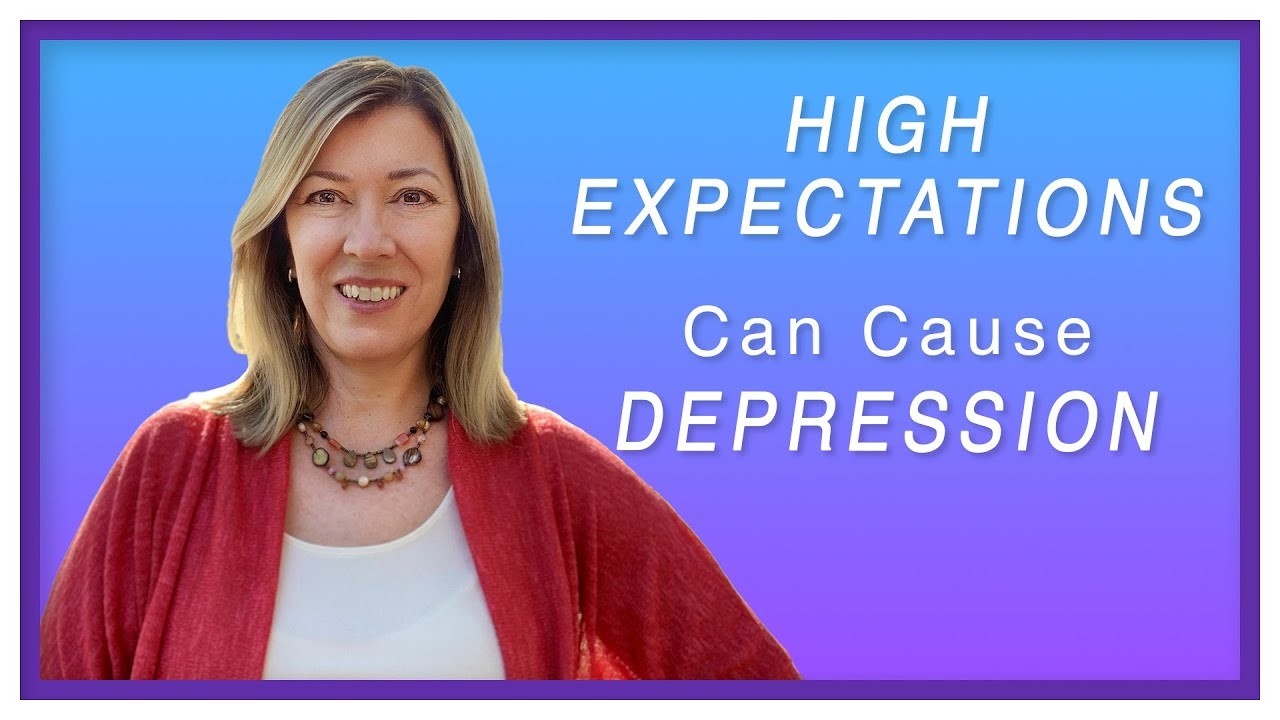
High Expectations Can Cause Depression
The pursuit of high expectations and self-imposed demands, while often associated with striving for excellence, can paradoxically lead to depression and emotional distress. This might sound counterintuitive, as we're encouraged to set ambitious goals. In this blog post we uncover the link between these expectations and struggling with depression.
Depression is a complex and often misunderstood mental health condition that affects millions of people worldwide. While there are various factors that can contribute to depression, one common thread is the presence of high self-imposed expectations.
The Weight of High Expectations:
Many individuals struggling with depression find themselves caught in a relentless cycle of self-criticism and unattainable expectations. These expectations often stem from early childhood experiences or personal personality traits. These expectations can range from striving for perfection in academics and career to seeking a flawless body or maintaining ideal relationships. The problem arises when there's a significant gap between what we expect from ourselves and how we perceive ourselves, leading to emotional distress.
Aiming for perfection in a relationship: The expectation of "perfection" within a romantic relationship, suggests the belief that we should never make mistakes, disappoint partners, or show any negative emotions. The pursuit of such an unrealistic standard can create immense pressure and anxiety, as constantly striving to meet an unattainable ideal.
Striving for impeccable job performance: The expectation of "impeccable job performance" signifies an aspiration to always perform flawlessly. This expectation can lead to overwork, burnout, and heightened stress as attempts to meet an exceedingly high standard, which may not always be realistic or sustainable.
The Psychological Collapse:
This mismatch between expectations and reality can lead to what experts call a "psychological collapse." People who experience this collapse often feel like they've let themselves down so profoundly that they spiral into depression. This emotional turmoil can manifest in self-destructive behaviors, substance abuse, or even suicidal thoughts.

Are you struggling with OCD or Pure O? Do obsessive thoughts, rituals, and compulsions take over your life? Has it been hard to find a specialist to help you?
If you want to get your life back from OCD or Pure O,
this course is for you.
Seven Strategies to Untangle Depression from High Expectations:
-
Identify Your Expectations: Start by making a list of the high expectations you hold for yourself. Seeing these expectations in black and white can help you realize their impracticality.
-
Practice Self-Acceptance: Self-acceptance is a crucial step in mitigating the impact of high expectations. Understand that it's okay not to meet every expectation you set for yourself. Be gentle and forgiving toward yourself.
-
Set Realistic Goals and Dreams: Goals and dreams are essential, but they should be realistic and achievable. Embrace flexibility in your aspirations, allowing room for adjustments and changes.
-
Try the Double Standard Technique: Imagine what advice you would give to a friend facing the same expectations and challenges. Apply that same compassionate perspective to yourself.
-
Reflect on the Effects: Take a moment to reflect on how these high expectations impact your life. Do they motivate you positively, or do they cause anxiety and harm? Honest self-reflection can help you decide whether to keep or discard these expectations.
-
Letting It Go: If you find that a particular expectation is causing more harm than good, make a conscious decision to let it go. Remind yourself that these expectations may have been formed in childhood and no longer serve your well-being.
-
Allow Flexibility and Self-Compassion: Embrace the idea that it's okay to change your mind, make mistakes, and reassess your expectations. Practice self-compassion and kindness as you navigate through life's challenges.
Depression linked to high self-imposed expectations is a real and challenging experience for many individuals. However, by recognizing these expectations, practicing self-acceptance, and implementing the strategies outlined above, you can start to untangle the complex web of depression. Remember that you are not alone in this journey, and it's essential to be kind to yourself as you strive for mental well-being. Depression is a formidable opponent, but with the right tools and support, you can regain control of your life and move towards a brighter future. Managing the relationship between high expectations and mental health requires recognizing the fine balance between setting ambitious goals and maintaining one's emotional well-being. By acknowledging the complexity of this relationship, individuals can work towards finding a healthier and more sustainable way to navigate life's challenges through self-acceptance, self-compassion, and the importance of reevaluating expectations to foster mental health and well-being.
Let's Keep in Touch
Subscribe to My Newsletter
We hate SPAM. We will never sell your information, for any reason.







